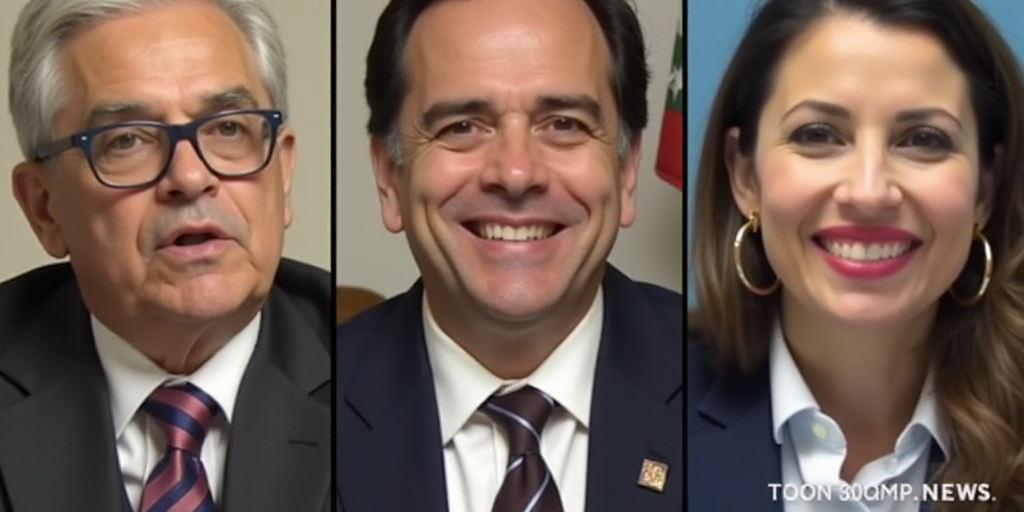Background on Key Figures and Their Relevance
Democratic Representative Greg Stanton and Republican María Elvira Salazar have introduced a proposal for the US Congress to issue a resolution against Mexico’s constitutional reforms enacted over the past year. These legislators from both parties aim to address concerns that these reforms violate agreements between the two nations.
Who are Greg Stanton and María Elvira Salazar?
- Greg Stanton: A Democratic representative from Arizona, Stanton served as the mayor of Phoenix from 2012 to 2020. He is known for his work on public safety, education, and economic development.
- María Elvira Salazar: A Republican representative from Florida, Salazar was born in Cuba and has been a strong advocate for human rights and democracy in Latin America. She was elected to Congress in 2020.
Key Concerns and Impact on US Interests
The proposed resolution highlights the significance of the US-Mexico trade relationship, with bilateral trade exceeding $896 billion. Additionally, US companies have invested approximately $130.3 billion in Mexico, and five million American jobs are dependent on trade with Mexico.
Constitutional Reforms and Their Potential Consequences
The proposal outlines several constitutional reforms, known as the “Plan C,” initiated by President Andrés Manuel López Obrador near the end of his term and further approved by Claudia Sheinbaum’s administration. Key reforms include changes to the judicial system, elimination of autonomous bodies, prohibition of genetically modified corn, and reduced powers of the National Electoral Institute (INE).
US Concerns Regarding Mexico’s Democratic Institutions
The resolution expresses worry that the constitutional reforms and related legislation could negatively impact Mexico’s democratic institutions, separation of powers, judicial independence and transparency, and security. Furthermore, these reforms may weaken Mexico’s electoral system, National Guard, and independent oversight bodies.
Impact on Bilateral Efforts to Strengthen the Rule of Law
The proposed reforms are seen as undermining joint US-Mexico efforts to bolster the rule of law, combat organized crime, and address issues like the fentanyl crisis, human trafficking, and arms smuggling.
Next Steps
The proposal has been submitted to the House Foreign Affairs Committee for consideration.
Key Questions and Answers
- What is the main concern of the proposed resolution? The primary worry is that Mexico’s constitutional reforms violate existing agreements between the US and Mexico, potentially harming economic and security interests in North America.
- Why is the US-Mexico trade relationship significant? The bilateral trade exceeds $896 billion, with US companies investing around $130.3 billion in Mexico. Furthermore, five million American jobs rely on trade with Mexico.
- What specific constitutional reforms are causing concern? Key reforms include changes to the judicial system, elimination of autonomous bodies, prohibition of genetically modified corn, and reduced powers of the National Electoral Institute (INE).
- How might these reforms affect democratic institutions in Mexico? The resolution worries that these reforms could negatively impact democratic institutions, separation of powers, judicial independence and transparency, and security in Mexico.
- What are the implications for US-Mexico cooperation on key issues? The proposed reforms are seen as undermining joint efforts to strengthen the rule of law, combat organized crime, and address issues like the fentanyl crisis, human trafficking, and arms smuggling.






